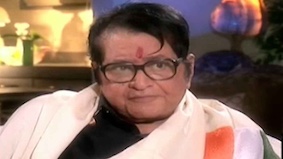- Islamabad
- 24.4°C
- Today ( Saturday, 19 April 2025)
- Home
- Autobiography
- Romance of autobiography
Romance of autobiography
An autobiography is a literary genre where an individual writes about their own life story, experiences, and reflections. Unlike a biography, which is written by someone else about another person's life, an autobiography provides a first-person account of the author's journey, achievements, struggles, and personal growth.
Writing an autobiography can be a deeply introspective and rewarding process, allowing the author to reflect on their past, make sense of their experiences, and share their insights with readers. Autobiographies often cover various aspects of the author's life, including childhood, family background, education, career, relationships, and significant life events.
The structure and style of an autobiography can vary widely depending on the author's preferences and the intended audience. Some autobiographies follow a chronological narrative, tracing the author's life from birth to the present day. Others may adopt a thematic approach, focusing on specific periods, relationships, or themes that have shaped the author's identity and worldview.
Autobiographies also offer readers a unique opportunity to gain insight into the author's personality, values, beliefs, and perspective on life. Through candid and honest storytelling, authors can connect with readers on a personal level, inspiring empathy, understanding, and reflection.
Moreover, autobiographies serve as valuable historical and cultural documents, providing firsthand accounts of significant events, social movements, and cultural shifts. They offer readers a window into different time periods, cultures, and ways of life, enriching our understanding of human experiences and the complexities of the human condition.
For authors, writing an autobiography can be a transformative and cathartic experience, allowing them to confront their past, come to terms with their emotions, and find closure on unresolved issues. It can also be a form of self-expression and self-discovery, empowering authors to reclaim their narrative and share their truth with the world.
In conclusion, autobiographies play a vital role in literature and storytelling, offering readers a glimpse into the lives of remarkable individuals and the myriad experiences that shape our shared humanity. Whether it's a tale of triumph over adversity, a journey of self-discovery, or a reflection on the human condition, autobiographies have the power to inspire, educate, and resonate with readers across generations.
-
Lionel Messi, the football maestro, has been crowned TIME's Athlete of the Year 2023, surpassing renowned athletes Erling Haaland and Novak Djokovic. His record-breaking 8th Ballon d'Or further solidifies his legendary status in the world of football. Messi's pi...
-
In a bid to foster emerging talent in women's cricket, the Pakistan Cricket Board (PCB) has granted domestic contracts to 11 additional women cricketers, pushing the total number of domestic contracted players to 80. Among the recent inductees, one hails from the emergi...
Get Newsletter
Subscribe to our newsletter to get latest news, popular news and exclusive updates.
























Facebook Comments